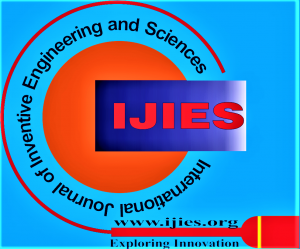![]()
Quality of Service for Differentiated Traffic using Multipath in Wireless Sensor Networks
Prabha R1, Shivaraj Karki2, Manjula S. H3, K. R. Venugopal4, L. M. Patnaik5
1Prabha R, Department of Computer Science and Engineering, University Visvesvaraya College of Engineering, Bangalore, India.
2Shivaraj Karki, Department of Computer Science and Engineering, University Visvesvaraya College of Engineering, Bangalore, India.
3Dr. S. H. Manjula, Department of Computer Science and Engineering, University Visvesvaraya College of Engineering, Bangalore, India.
4Dr. K. R. Venugopal, Department of Computer Science and Engineering, University Visvesvaraya College of Engineering, Bangalore, India.
5Dr. L. M. Patnaik, Honorary Professor, Indian Institute of Science, Bangalore, India.
Manuscript received on December 05, 2014. | Revised Manuscript received on December 09, 2014. | Manuscript published on December 20, 2014. | PP: 61-66 | Volume-3 Issue-1, December 2014. | Retrieval Number: A0566123114/2014©BEIESP
Open Access | Ethics and Policies | Cite
© The Authors. Blue Eyes Intelligence Engineering and Sciences Publication (BEIESP). This is an open access article under the CC BY-NC-ND license (http://creativecommons.org/licenses/by-nc-nd/4.0/)
Abstract: Providing Quality of Service in wireless sensor networks refers to a set of service requirements to be satisfied when transmitting a packet from source to destination. The main challenge involved in quality of service based data transmission is to select the efficient path from source to destination. Quality of service in wireless sensor networks is an important factor. The two most important parameters that hinder the goal of guaranteed event perception are time-sensitive and reliable delivery of gathered information, while minimum energy consumption is desired. In this paper, a multi-traffic, multi-path and energy aware data transmission mechanism is proposed for improving Quality of Service in Wireless Sensor Networks. The simulation results demonstrate that, the algorithms efficiently improve quality of reception ratio, satisfying the required quality of service metrics.
Keywords: Differentiated Traffic, End-to-End Delay, Energy, Reliability, Wireless Sensor Networks
